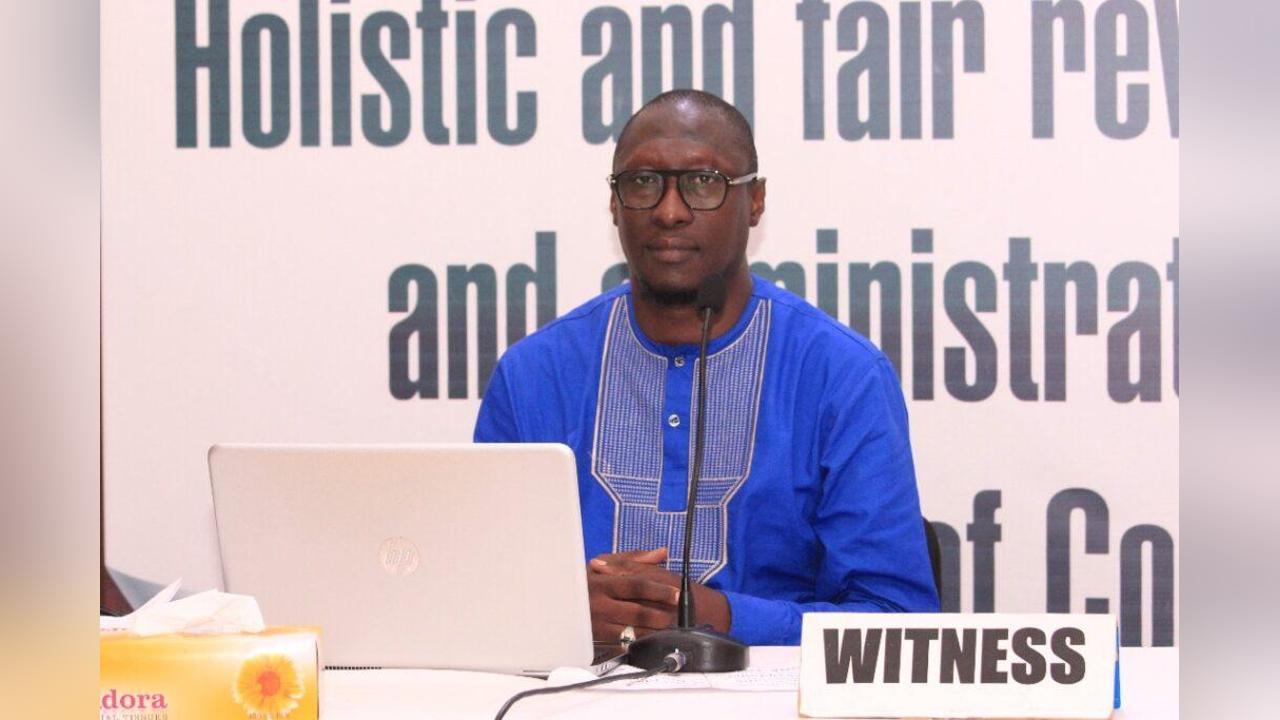Africa-Press – Gambia. The Administrative Manager of the Banjul City Council (BCC), Sandigi Njie, has disclosed to the Local Government Commission of Inquiry that the newly constructed BCC administrative complex is plagued by serious infrastructural and operational deficiencies, despite its completion three years ago.
Testifying on Thursday, Njie revealed that BCC only moved into the new building two months ago, and upon inspection, several critical flaws were immediately apparent. These included malfunctioning water systems connected to the building’s toilet facilities, faulty lighting, limited internet connectivity, and the use of expired software.
“There was no certificate of completion for the building, no inspection report, and no handing over,” Njie told the commission, noting that the defects were so obvious that “it does not require you to have knowledge in these things; you go; you still see defects, very serious ones,” he told the commission.
Njie further disclosed that the council had spent D4.1 million on IT infrastructure for the new complex, a contract awarded to a company named Micro Tech. However, the internet connectivity remains dysfunctional. In an effort to resolve the issue, BCC engaged Gamtel’s Managing Director, who subsequently deployed a team to assess the situation and produced a report outlining the deficiencies.
“It seems from a layman’s point of view there is a body, but the brain to make it function is not there,” Njie remarked.
Njie stated that prior to approaching Gamtel, the council had made several attempts to contact the proprietor of Micro Tech, but received no response.
He further disclosed that they received information indicating that funds linked to the transaction were traced to the accounts of individuals involved in the deal, specifically members of the contract committee and the EU-funded project.
According to Njie, he informed the Chief Executive Officer (CEO) that the council would not allow the D4.1 million investment to be lost without accountability. He added that the CEO subsequently informed him that the proprietor of Micro Tech had been referred to the Fraud Squad for investigation.
Additionally, Njie submitted a number of vouchers to the Commission pertaining to the Banjul-Ostend Project. He noted that he had been scrutinizing these documents and had uncovered what he described as “some interesting findings” related to the EU project. Saying, “And I happen to find some interesting things about the EU project.”
The vouchers were tendered as evidence and admitted as an exhibit.
He expressed surprise at the existence of a finance committee for the project, noting that, to his knowledge, the EU-funded project only had a steering committee.
“How they arrive at creating the finance committee, I don’t know, and you can see the systematic way of trying to generate more revenue in trying to create more meetings, and they have a fixed monthly allowance, and every meeting you attend, you have an allowance,” he said.
He informed the commission that certain individuals receive a monthly allowance of D10,000 in addition to their regular salaries and payments for attending meetings.
Njie further explained that the project’s budget of 195 million Dalasi, equivalent to 3.1 million Euros, was nearly squandered. “It went down the drain almost. The EU project almost collapsed.”
Lead Counsel Gomez informed Njie that previous witnesses had testified that the project was not a failure but rather a success.
In response, Njie appealed to the Commission to conduct a site visit to independently verify the project’s condition.
However, Counsel Gomez maintained that the project was clearly unsuccessful based on the available evidence.
“We told them it’s a failure. Number one, if you do not follow the regulations, you cannot succeed,” Counsel Gomez stated.
For More News And Analysis About Gambia Follow Africa-Press






